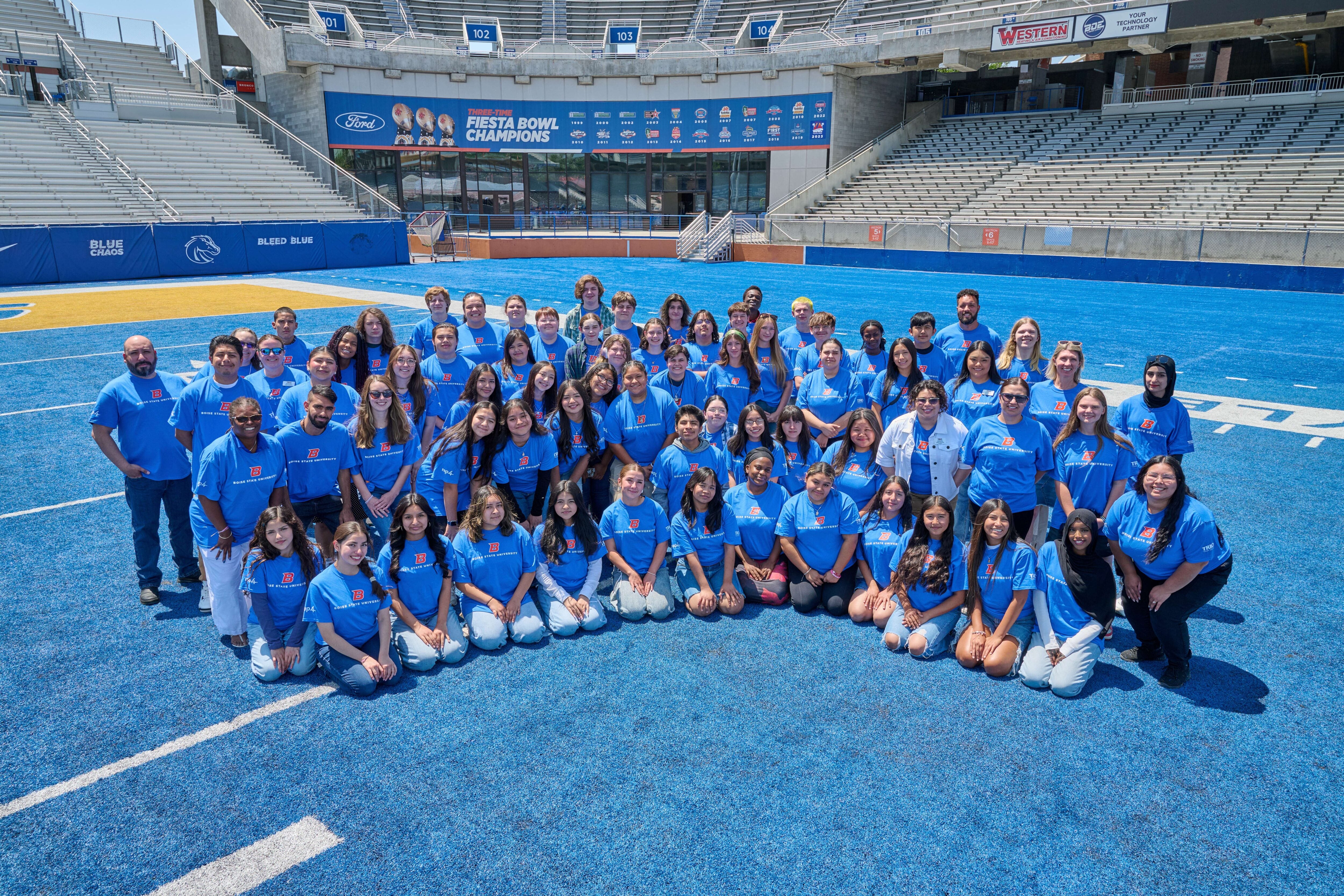
Earlier this month, students from 20 high schools across the Treasure Valley assembled at Boise State’s Student Union Building to brainstorm prototypes for the future of post-secondary education. The high schoolers are a part of REP4, a national alliance of universities that puts the power of establishing new, equitable systems for public higher education in the hands of those who have the most at stake — learners.
REP4 stands for “Rapid Education Prototyping,” and the “4” represents evolving elements, currently including equity, community, learners and change. Boise State is one of the seven founding partners of the REP4 Alliance.
From June 3 to June 6, over 40 local high schoolers gathered for the Regional Learner Summit at Boise State. Working in teams of five to eight students, they were tasked with a challenge: Create a resource that supports first-generation students, their families and/or their communities by easing the transition to post-secondary education to enhance academic and personal success.
“We identified a challenge that was related to what we see going on on our campus,” said Lisa Phillips, Boise State’s vice provost for community engagement and belonging, who led the effort to coordinate activities and create a meaningful prompt for REP4. “We know a lot. I’ve worked in higher ed for 30 years. Sometimes we get stuck in what we know, and we need to take a step back and listen to our students.”
The students were given tools and resources to conceptualize the challenge, but the task of creating a solution was fully in their hands.
“Students take the lead,” said Petya Stoyanova Johnson, director of TRIO Educational Talent Search. “We give them the challenge, and they come up with solutions based on what they think is needed. I think that’s the beauty of it on our end, seeing our students really blossom, take over and own the solutions they come up with.”
The challenge of serving first-generation students is personal to the learners involved in REP4. Stoyanova Johnson estimates that 90% of REP4 participants will be the first in their families to pursue post-secondary education. This makes it all the more important that REP4 participants get to visit Boise State and see themselves on a university campus.
“That’s the biggest win,” Stoyanova Johnson said. “Seeing students’ eyes light up and having them witness the opportunities that exist for them and their communities.”
On the final day of the Regional Learner Summit, each REP4 group presented their educational prototype to Boise State faculty and staff, as well as fellow REP4 participants, who voted on the idea that would be promoted to REP4’s national level.
The winning team’s concept was an app that would help first-generation students and their families get started on post-secondary education. The app, titled “The Next Step,” would gamify aspects of college admission and “moving up in college” in order to demystify these processes and make them fun.
Jaqueline Aguirre De Anda, a junior at Caldwell High School who has been involved in TRIO Educational Talent Search since middle school, said that REP4 is her favorite TRIO-related activity because the students get to take charge.
Aguirre De Anda said that by the culmination of the challenge, even the most reticent participants were breaking out of their shells to collaborate and share ideas. “The shyest people in my group ended up making the biggest impact,” she said.